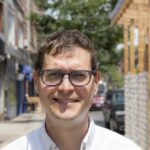In the first article in this mini-series, we established a theory of contextualization. In the subsequent post, we applied contextualization to the city, providing examples from my church planting journey in NYC. In this final piece, we will apply contextualization to my current place of ministry: the secular “None Zone” of the Pacific Northwest.
I am a seminary professor in the secular city of Portland, Oregon, and I minister in a Chinese church outside the city. Portland is like NYC in at least one way: the percentages of evangelicals in both places are extremely low. But in other ways, Portland is dramatically different. The city feels more secular, more progressive, and much less diverse.
The Pacific Northwest has been termed the “None Zone” because of its high concentration of people who claim to have no religion. It is certainly true that religion (and especially spirituality) is here. People have called Portland the best place in the country to be a witch. If you are seeking cannabis catharsis or mushroom mysticism, then Portland is your place. And yet, with all the neo-pagan alternative religions here, Portland is still a predominantly secular city. Along with Seattle, it’s a major hub in the “None Zone.”
Having lived here only two years, I am still trying to exegete the cultural artifacts surrounding me. But I have learned a few things about contextualization in the “None Zone.” I have discovered three alternative salvation stories consistently told here. Contextualization in my current ministry demands that I demonstrate how the gospel subverts these narratives and tells a better story. This approach is essentially what Paul did in Athens (Acts 17).

